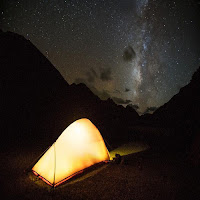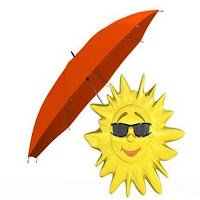Here are the camping tips that may help you
CAMPING TIPS
Camping is a fun activity but one that
needs manual skills. You can’t just go out there and decide to camp. There are
many things to do and know before you set out on this adventure. In fact, it is
a good idea to go camping the
first time with someone who is an
experienced camper. Even then, there are a few basic skills that you need to
master before planning that camping trip.
Finding a campsite & setting up a tent
You should practice this before you actually head out to the wilderness. First thing to do is find a flat surface. Make sure there are no rocks, sharp objects, sticks, and any debris that would make sleeping in the tent uncomfortable. If you’re buying a tent for the first time, you’ll find that it comes with instructions. In many cases, you’ll have to learn how to stake down the corners, attach tent poles, erect the tent frame, and putt on the rain-fly. Try to set up your tent in the backyard. And if you’re renting camping gear, ask for a demonstration in the store or get it early to practice with before you go
Beginners usually have trouble finding the
right spot to pitch their tents. The ideal spot is an even surface of soft soil
or gravel. Avoid rocky locations. Also, set up your tent on an elevated area
where rainwater doesn’t pool in. In many cases, you need to put a cloth on the
area and try to lie on it to see if it’s comfortable.
Cooking
Outdoors cooking differs
substantially from kitchen-based cooking, the most obvious difference being
lack of an easily defined kitchen area. You need food and cleaned water .And in
most of camping place you can easy find some food .Though
you will likely take some water with you, But is important to know how to clean
water from streams and lakes in case you run out of clean drinking water. .You
definitely need to know how to clean the water so that you
do not get ill from drinking dirty water – even if it looks clear it can still
be contaminate. If you don't have and basics for getting clean water in the outdoor, it doesn't matter, use the water purifiers, they are now available both in Walmart and on Amazon.
Health
Vaccinations can help protect against certain diseases and
conditions while camping. Check with your doctor or nurse to see if you've had
all of the recommended vaccines. He or she may recommend tetanus, Pertussis(whooping
cough), meningitis, and/or hepatitis A, depending on your medical history,
destination, and other factors.
Safety
Avoid wild animals, and protect family pets
Some wild animals carry
diseases that are dangerous to people. Avoid touching, feeding, and getting
near wild animals. Enjoy watching them from a safe distance in their natural
surroundings. Keep foods stored in sealed containers and out of the reach of
animals. Make sure your family pets are vaccinated and always keep a close eye
on them. Check for ticks, and remove them promptly. Make sure pets have plenty
of water, food, and shelter.
Fight the bug bite
Mosquitoes, ticks, and other
insects can cause certain diseases. To help fight the bite, apply insect repellent containing DEET to exposed skin. Be
sure to follow directions on the package. Check for ticks daily, and remove
them promptly. Wear long sleeves, pants, and other light-colored clothing to
help prevent and spot ticks more easily.
Prevent temperature-related illness.
To help prevent hypothermia during cool nights, bring adequate
bedding and clothing to stay warm. Use a plastic ground cloth under your tent
to help keep you dry. To help prevent heat-related illness during hot days,
drink plenty of alcohol-free and sugar-free fluids. Don’t wait until you’re
thirsty to drink. Wear layers of light-weight, light-colored, and loose-fitting
clothing. You should rest often in shady areas. Protect yourself from too much
sun.
Be prepared.
Always prepare for the unexpected. Before you
leave, check the weather report, learn about security at your camp location,
and tell family and friends your plans. Know what to do when toilets are not
available. Be sure to bring along a supply kit that includes a first-aid kit,
compass or GPS, map, flashlight, blankets, batteries, food, drinkable water, clothes, and medications. Know who to
contact at the camp to report issues that may come up. When you return home, you should check for ticks, skin rashes or sunburn, dehydration, and
other problems.
Source:Shane & Wikipedia,the encyclopedia & CDC




Comments
Post a Comment